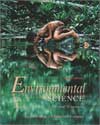 |
1 |  | 
Name the three basic types of rocks, and briefly describe how each is formed. |
|  | |
 |
 |
2 |  | 
Outline the sequence of events of the rock cycle. |
|  | |
 |
 |
3 |  | 
Explain how tectonic plates and their activities are connected to earthquakes, volcanoes, and mountain building. |
|  | |
 |
 |
4 |  | 
Describe the kinds of environmental damage associated with mining and ore processing. |
|  | |
 |
 |
5 |  | 
Outline the main features of U.S. mining law as it pertains to mining on public lands. |
|  | |
 |
 |
6 |  | 
A U.S. senator has stated that the antiquated U.S. mining law is "a license to steal." Explain the basis for such a claim. |
|  | |
 |
 |
7 |  | 
The attempt to revise the 1872 mining law has become quite controversial. Pretend you have been called to testify at a congressional hearing on the matter. Outline as strong an argument as you can:
a. in favor of reform.
b. opposed to reform. |
|  | |
 |
 |
8 |  | 
"If only the rocks could speak." For purposes of this question, imagine that they can and that you have a one-billion-year-old grain of quartz in your hand just itching to tell you of the adventures it has had during its existence. Let your imagination loose and write a short fictional account of the highlights in the billion-year history of that collection of molecules. Move the grain through the rock cycle at least twice. |
|  | |
 |
 |
9 |  | 
It has been said that the richest ore we have is our mountains of scrapped cars. Under what conditions do you think our society will fully utilize metal waste to reduce the need for mining and thereby avoid the associated environmental costs? |
|  | |
 |
 |
10 |  | 
Some people argue that concerns about running out of a given mineral, such as copper, for example, are irrelevant in the long run. What facts would you cite in support of that position? |
|  | |
 |
 |
11 |  | 
When my students learn about all the air and water pollution that can be avoided and the energy that can be saved by recycling, they inevitably ask, "Why are we doing so little?" How would you answer that question? |
|  | |
 |
 |
12 |  | 
Some undeveloped countries have rich deposits of strategic minerals, much more than they are currently consuming themselves. So most of these nations are exporting the minerals to the United States, Japan, and Western Europe. While these exports bring in revenue, much greater revenues are produced when the minerals are manufactured into products. These profits typically do not go to the country in which the minerals were mined.
Assume that the leaders of a poor, undeveloped country decided to hold back exporting their mineral wealth and profits to developed nations. Assume instead that they decided to try to develop their own industry so that the minerals would be converted to final consumer products in their own country, thus retaining profits and building their own local economy.
a. What steps could a nation take to achieve those goals?
b. What risks are inherent for a country that sets out to do this? |
|  | |
 |



 2003 McGraw-Hill Higher Education
2003 McGraw-Hill Higher Education